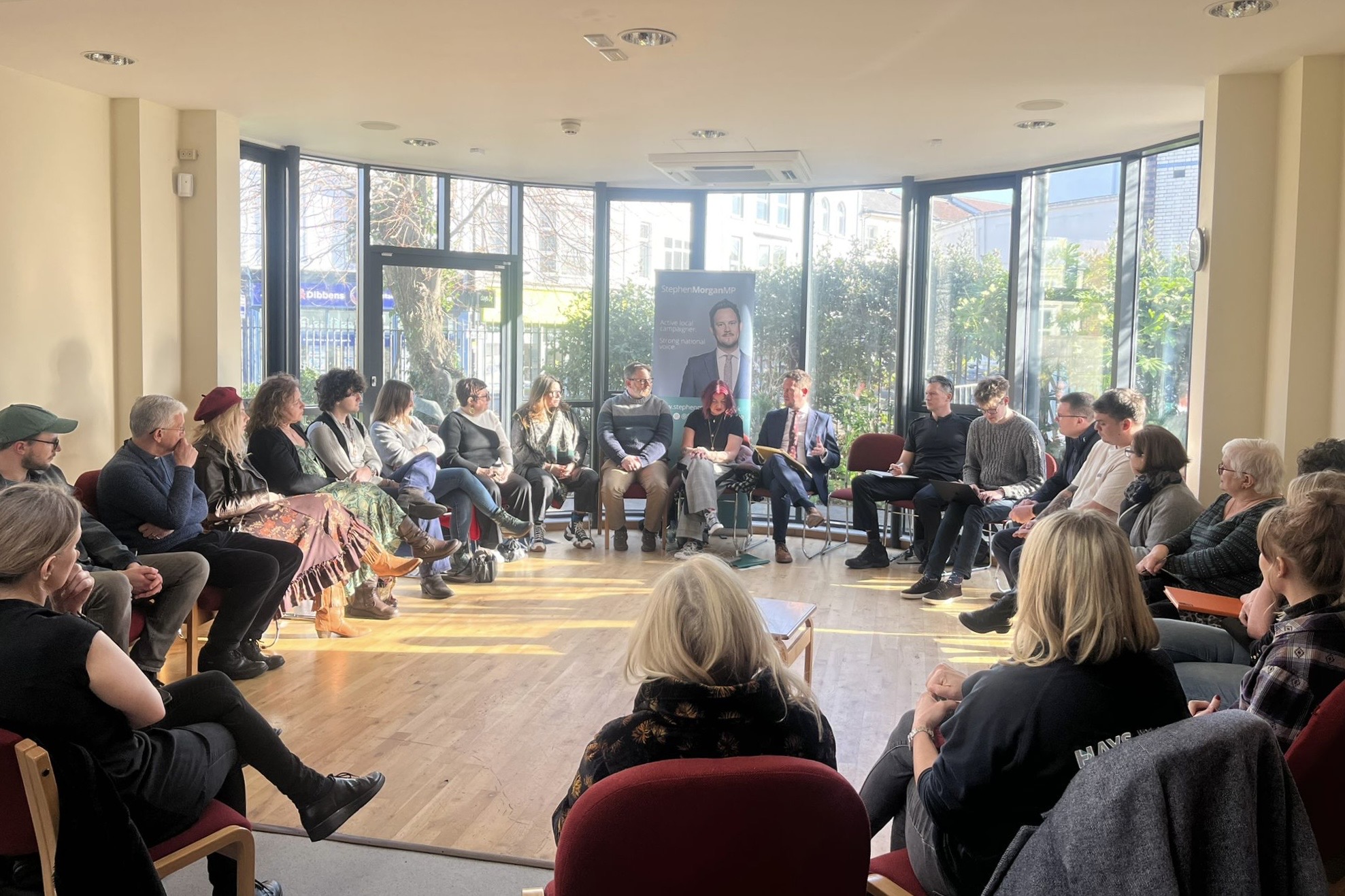
Stephen Morgan has said Labour will bring face-to-face banking back to the high street with 350 ‘banking hubs’ to open in towns and villages across Britain over the next five years.
Earlier this year Natwest announced that it will be closing down a large number of its branches following a decrease in customers – including ones in Portsmouth and its surrounding towns.
Mr Morgan, Labour’s candidate for Portsmouth South, has long taken action to revitalise parts of Portsmouth that have been left behind and tackle current problems such as crime and anti-social behaviour.
Earlier this year Mr Morgan brought together local traders and small businesses from Palmerston Road and nearby streets to discuss current challenges and future opportunities for the area.
The roundtable followed successful action from Mr Morgan at Guildhall Walk where he similarly hosted regular forums to get things done to raise concerns with decision-makers and bring about improvements in the area.
Mr Morgan has made securing investment for Portsmouth one of his priorities, but under the Conservatives, the constituency has repeatedly been overlooked for levelling up funding.
Under the Tories, since 2015, 6,000 bank branches have closed, contributing to the creation of ‘ghost high streets’ across Britain.
High street businesses – from pubs, to hairdressers, to grocery stores – depend on access to face-to-face banking.
Banking hubs are bricks and mortar, face-to-face banking services that provide access to cash withdrawals, cash deposits and banking advice and support.
Funded by the major banks, they are run by Cash Access UK and the Post Office. They allow customers from more than a dozen different banks and building societies to access face-to-face banking services on the high street.
Labour said that it will give new powers to the regulator – the Financial Conduct Authority (FCA), and strengthen regulation to support LINK – the UK’s largest cash machine network, to proactively source locations for new banking hubs.
The banking hubs are part of Labour’s plans to breathe new life into Britain’s high streets by:
- Replacing business rates
- Stamping out late payments to SMEs
- Cracking down on anti-social behaviour
- Allowing communities a new ‘right to buy’ beloved community assets like pubs
- Creating 350 banking hubs.
All of Labour’s policies are fully-costed and fully-funded, as set out in ‘Change’, Labour’s manifesto that was published last week.
Commenting, Labour candidate for Portsmouth South, Stephen Morgan said:
“Since 2015, 6,000 bank branches have closed across the country, including some here in Portsmouth – a symbol of Tory decline.
“I have long taken action to revitalise parts of Portsmouth that have been left behind by the Tories and tackle current problems such as crime and anti-social behaviour.
“It is vital we bring our high streets back to life and ensure people continue to have the option to bank in person. Labour’s plan will help do this by quickly establishing banking hubs where they’re needed, breathing new life back into our high streets.”
Rachel Reeves, Labour’s Shadow Chancellor of the Exchequer, said:
“After 14 years of the Tories, many of our high streets have been reduced to ghost towns. This election is a chance to vote for change to end the chaos and decline and make our high streets better off.
“Labour’s plan for growth means bringing banking back to high streets, with hundreds of new banking hubs that can support local communities and their businesses.
“Change will only come if you vote for it on 4 July. It’s time for change with Labour.”
Mr Morgan has vowed to continue making sure businesses in Portsmouth feel heard and are given the support they need to succeed.
Labour has committed to scrapping regressive business rates to give small businesses the opportunity to thrive, paid for by making sure large corporations pay their way.

